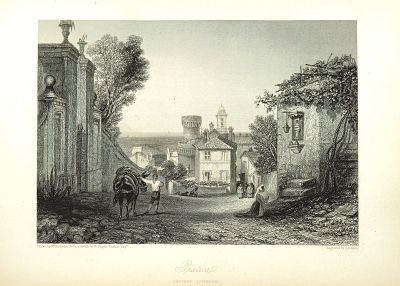 Want a hot argument?
Want a hot argument?
Pick a school canon! Whatever the reading list your school selects, the school will have left out hundreds more worthy books than it can pick. This is true, even if you have kindergarten through college! There is simply not enough time to read all the good books that have been written or even the books that we should read. Given this fact, teachers and professors begin choosing with humility what students will read.
No list is “complete.” No list is good enough. Every list can be challenged. As a result, we begin by establishing limits. We cannot start hoping to learn everything in this life, that is why God made eternity! Instead, we begin close to home and then work our way out.
If we are going to love our neighbor, then we should understand our neighbor. In the case of schools where I have worked, we have been located in the United States and have served a community that (mostly) grew up speaking English. As a result, we started our reading lists by trying to help our students understand the culture of this nation and this language. This is not because the United States of America is the best nation, though it is a very great power, but because it is our nation.
We must love our motherland. The language that shaped that nation was born of the Book of Common Prayer, the King James Bible, and Shakespeare, so we try to teach those traditions. At the same time, I have worked for Christian schools and Christianity is not merely American and has not mostly been practiced in English. As a result, we have tried to reflect the diversity of one, holy, universal, orthodox Church. Just the founding documents of that faith, East and West, fill up more years of study than the sixteen we have at The Saint Constantine School.
Any school must choose what to emphasize and my own belief has been that students are less likely to read old books than new. I have tried to emphasize the ancient and hope that the contemporary will come over a lifetime. The goal is to lay the foundational texts (some of them!) and then hope that students can explore later documents on their own.
Maybe.
We have to choose somehow.
The danger of these criteria is that students will think (!) that Chinese, Indian, or any other culture has nothing to offer. One cannot exhaust Greece, Rome, England, or the United States . . . so imagine the riches in China, India, or any other language! The error would be to think that any canon (list of texts) is exhaustive, when it is merely the start of an eternity of learning.
We start with the language where we learned to say “Mamma” and then move to the great world. Truth, goodness, and beauty is everywhere. I think, however, that it is good and proper to learn some depth in the mother tongue, in the motherland, and in the mother culture. We must move further up and further into God, which requires learning of other people, tribes, and nations, but first we need a home.
The United States of America has vices and virtues, but she is my motherland. English is my mother tongue. I start there . . . and have begun programs with that in mind. Others have different starting places and must do differently and that is the beauty of education.
Many tribes, nations, and peoples will stand before God’s throne in worship . . . and there will be an eternity to read the canon they will all present to Wisdom!












